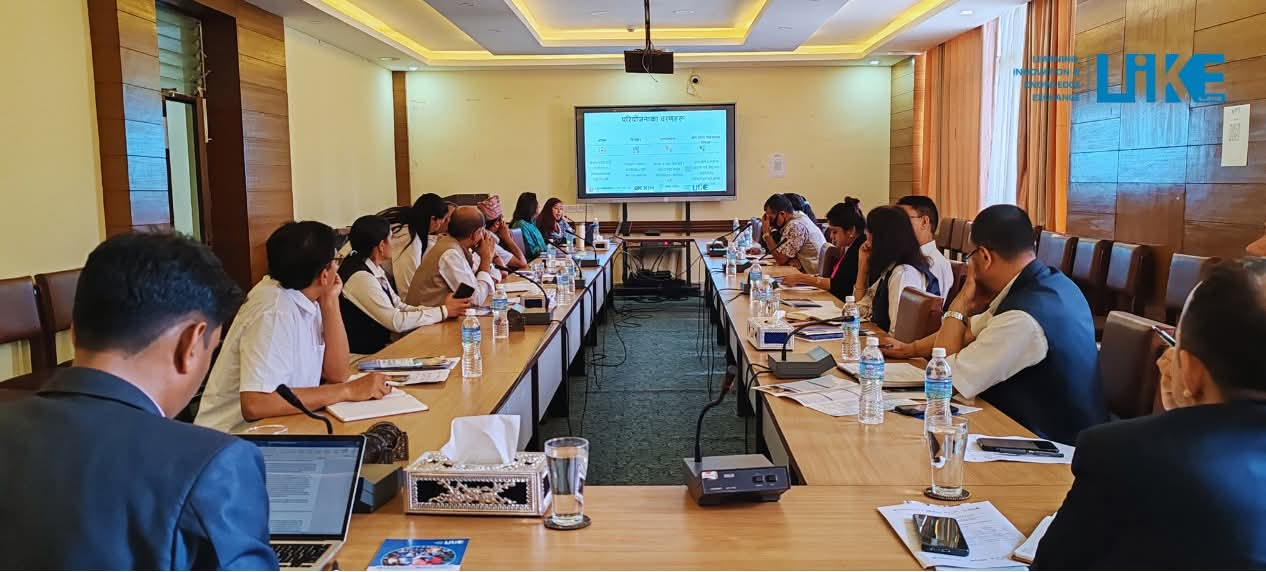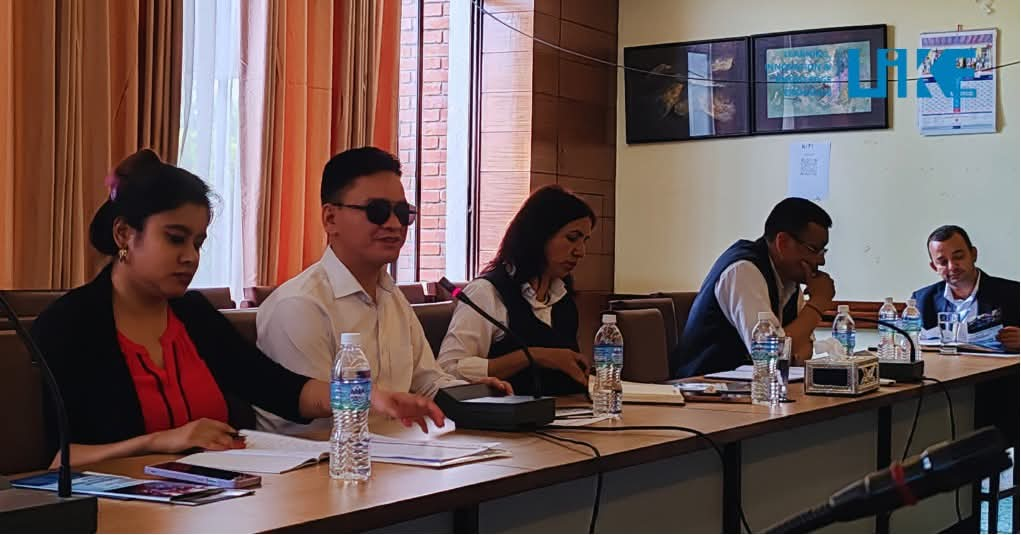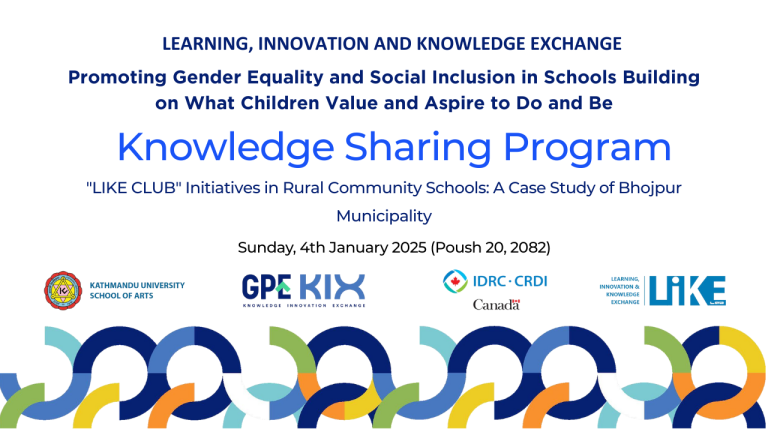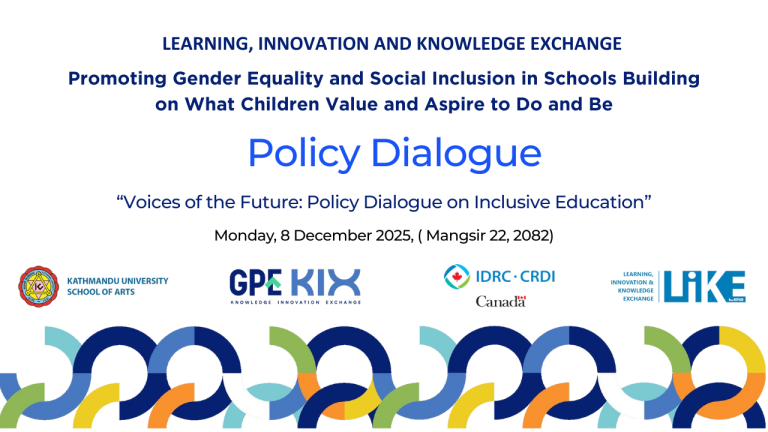
BHAKTAPUR, NEPAL, JUNE 18th, 2025 – The Learning, Innovation and Knowledge Exchange (LIKE) Lab at Kathmandu University School of Arts, in collaboration with the Centre for Education and Human Resource Development (CEHRD), organized a high-level consultation meeting at CEHRD’s office in Sano Thimi. The session brought together 27 participants, including government officials, researchers, and policy experts, to share the progress of the “Promoting Gender Equality and Social Inclusion in Schools Building on What Children Value and Aspire to Do and Be” (CVEC Project) and explore opportunities for deeper collaboration in advancing inclusive education policy in Nepal.
Facilitated by Mr. Deepak Majhi (CEHRD) and Ms. Anushka Shrestha (LIKE Lab), the session opened with a welcome emphasizing the importance of institutional partnerships for inclusive education.
LIKE Lab researchers Ms. Isha Karki and Ms. Mijala Chitrakar delivered a comprehensive presentation covering:
- The establishment and values of LIKE Lab under GPE KIX and IDRC funding.
- Project objectives, site selection in Nepal, and phased structure (design, implementation, capacity building, knowledge sharing).
- The 16 valued capabilities framework co-created with children, focusing on their well-being, aspirations, and lived experiences.
- Progress made to date in generating evidence for promoting gender equality and social inclusion (GESI) in schools.
Key Issues Raised During Discussion
The open discussion generated critical reflections and valuable recommendations from CEHRD and other stakeholders:
- Calls for linking the capabilities framework with existing policy frameworks such as SESP’s Seven Values, the GESI Framework, and ongoing government initiatives.
- Interest in embedding CVEC findings into national programs like the Bidhayalaya Sudhar Yojana (School Reform Program).
- Participants recommended integrating disability-sensitive frameworks such as WHO’s International Classification of Functioning (ICF) to ensure more comprehensive inclusion of children with disabilities.
- Emphasis on aligning the project with local education plans (LEPs), school improvement plans (SIPs), and municipal-level education networks such as Palika Tatha Sikshya Samabesi Sanjal (Municipal and Education Inclusion Network).
- Suggestions to expand the project’s reach to municipalities and district education bodies to strengthen community-level governance.
- Acknowledgement that children’s perspectives vary by age and context.
- Recommendations for expanding the sample size to improve the generalizability of findings.
- Emphasis on building sustainable partnerships with local governments and municipalities.
- Practical questions about whether schools have dedicated GESI focal persons, grievance officers, or information officers to support inclusive monitoring and implementation.
- Overlap with the 2076 Integrated Curriculum, which includes behavioral competencies and soft skills, and explored how CVEC findings could further enrich these areas.
- Recognition that LIKE Lab’s research outputs can directly contribute to national policy development, particularly around GESI integration, inclusive assessment systems, and capacity-building for school-level stakeholders.
The meeting concluded with remarks from Mr. Mahendra Parajuli, Deputy General Director of CEHRD, who reaffirmed CEHRD’s strong interest in collaborating with LIKE Lab. He emphasized the importance of translating research findings into policy action, expanding inclusive networks, and jointly contributing to a more equitable and child-centered education system in Nepal.




